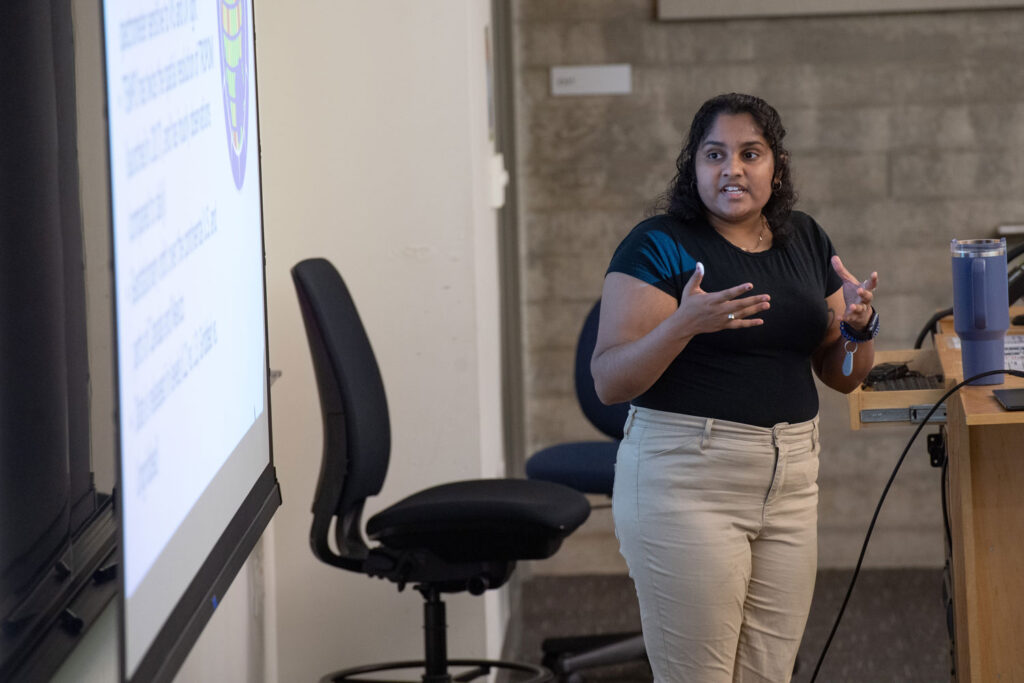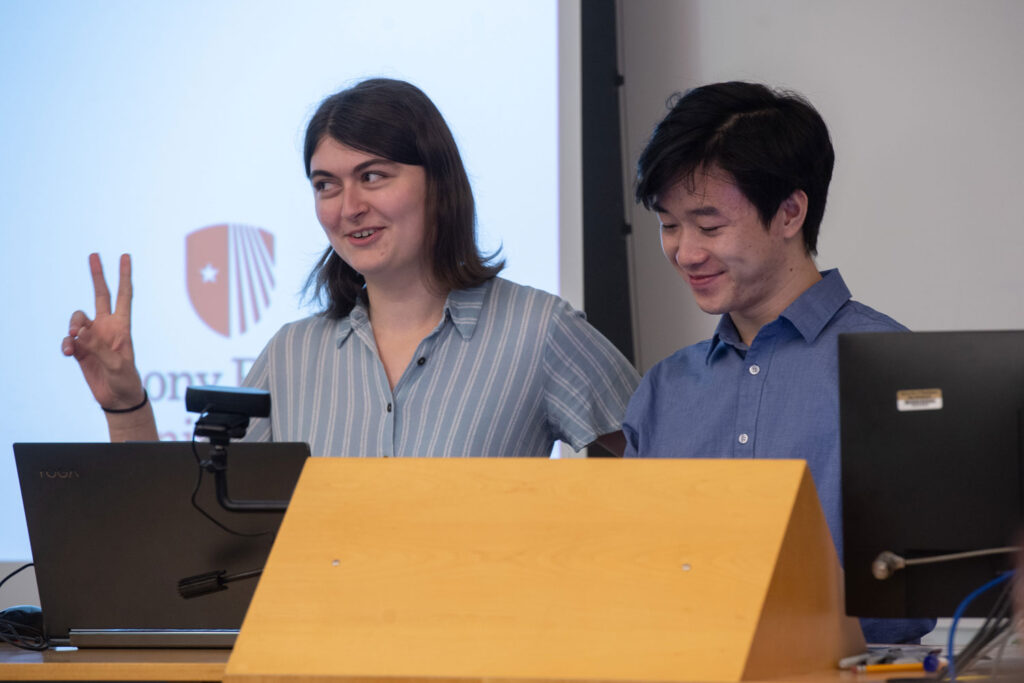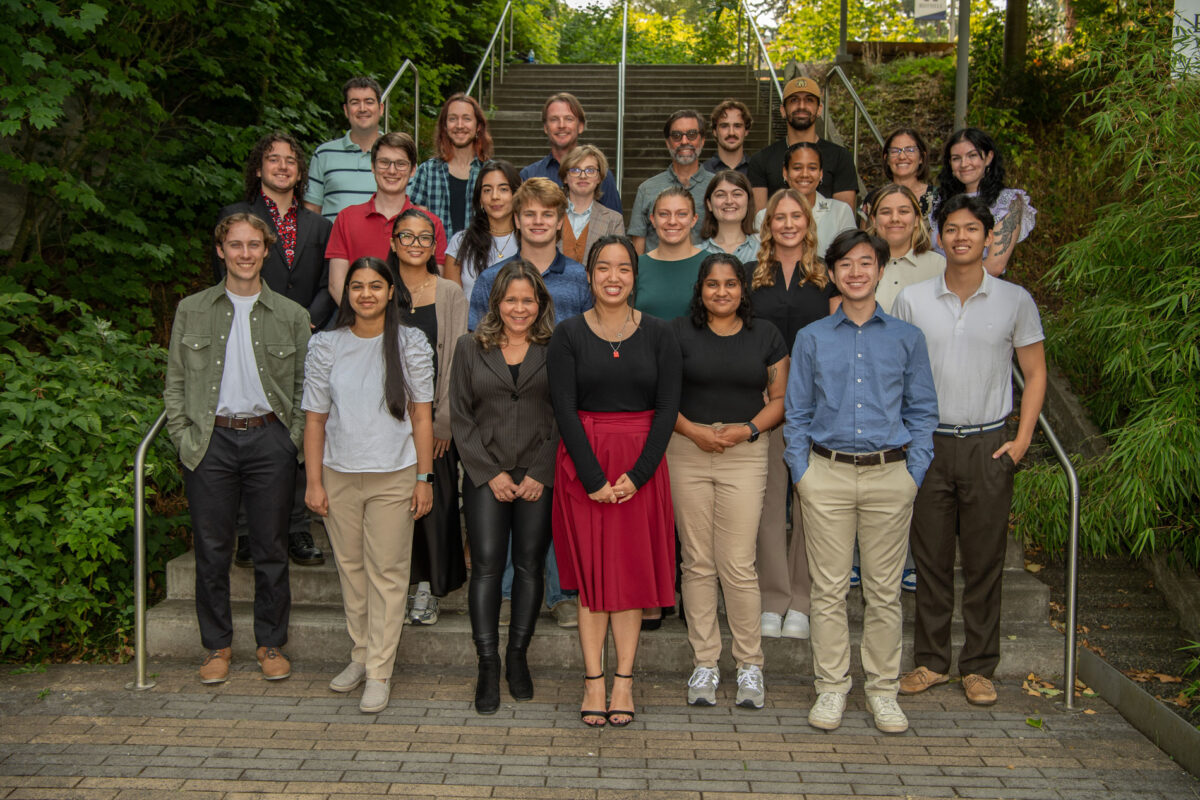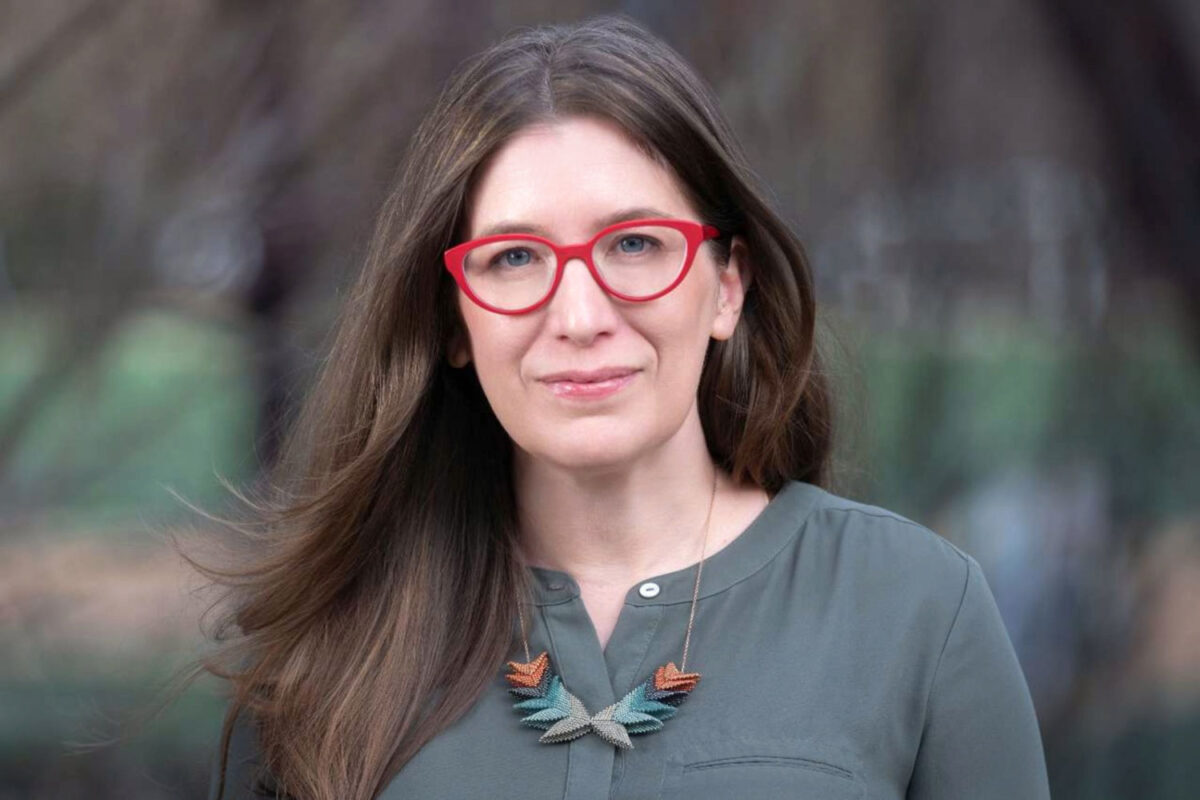When learning a new language, many people find they learn more in a short visit to a new country than in the months or even years spent studying the language beforehand. Their trips not only solidify the hard work they’ve already put in but offer a fully immersive experience to learn even more — and at a rapid rate.
Immersive research experiences can offer STEM students similar opportunities to fast track learning and put the culmination of their undergraduate studies to practice in a real-world environment.
One such opportunity is Research Experience for Undergraduates, a program funded by the National Science Foundation that supports intensive research for a cohort of students each year around new or ongoing NSF-funded research. Through this program, the University of Washington Bothell hosts students from around the country each summer for a two-month, immersive experience.
“I’ve learned more in eight weeks than I had in my many classes in the past,” said Paul Wilhoit, a senior majoring in Math and Actuarial Science at Roanoke College in Salem, Virginia. “The most rewarding part for me is gaining new knowledge throughout the experience, the feeling that I’ve accomplished something and seeing that all this work we’ve been doing actually is producing results and can be applied to help other industries, such as CT (computed tomography) imaging.”
In 2024, UW Bothell welcomed a cohort of 21 students for REUs in both physics and math, researching topics from climate science to the algorithms that keep modern technology functioning.
I’ve learned more in eight weeks than I had in my many classes in the past. The most rewarding part is gaining new knowledge … and seeing that all this work we’ve been doing actually is producing results.
Paul Wilhoit, senior in Math and Actuarial Science, Roanoke College
Applying work to the real world
For many students majoring in subjects such as math and the hard sciences, the real-world value of their work can be difficult to grasp while they put in often tedious hours to learn the basics, such as solving equations and developing proofs.
In one of the math groups, mentored by Dr. Milagros Loreto, associate professor in the School of STEM, students worked on numerical optimization, one of the central techniques in machine learning that is integral to much of today’s technology.
The students spent much time creating and testing an algorithm. In the early stages of math research, Loreto noted, it’s not uncommon to be working without a specific application in mind, but during this summer experience this group collaborated with another to consider how its work might be applied to CT imaging.
Under the mentorship of Dr. Thomas Humphries, associate professor in the School of STEM, for example, a group of students worked on using deep neural networks to improve the quality of CT images in cases where there is a sparse view or a limited angle that makes imaging more challenging. The REU students gained new programming skills as well as knowledge about the physics and mathematics of CT image reconstruction.
“The students worked well together and were able to come up with some nice results,” Humphries said. “They seemed to especially enjoy working on a project in a cutting-edge field such as neural networks, which hopefully will be relevant to their future careers.”
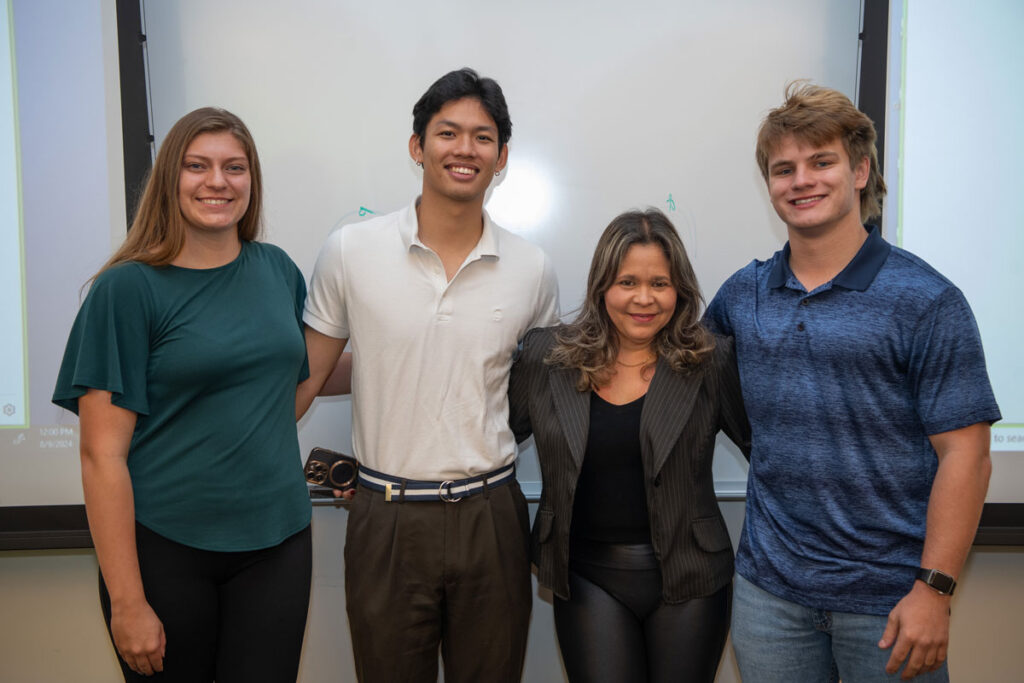
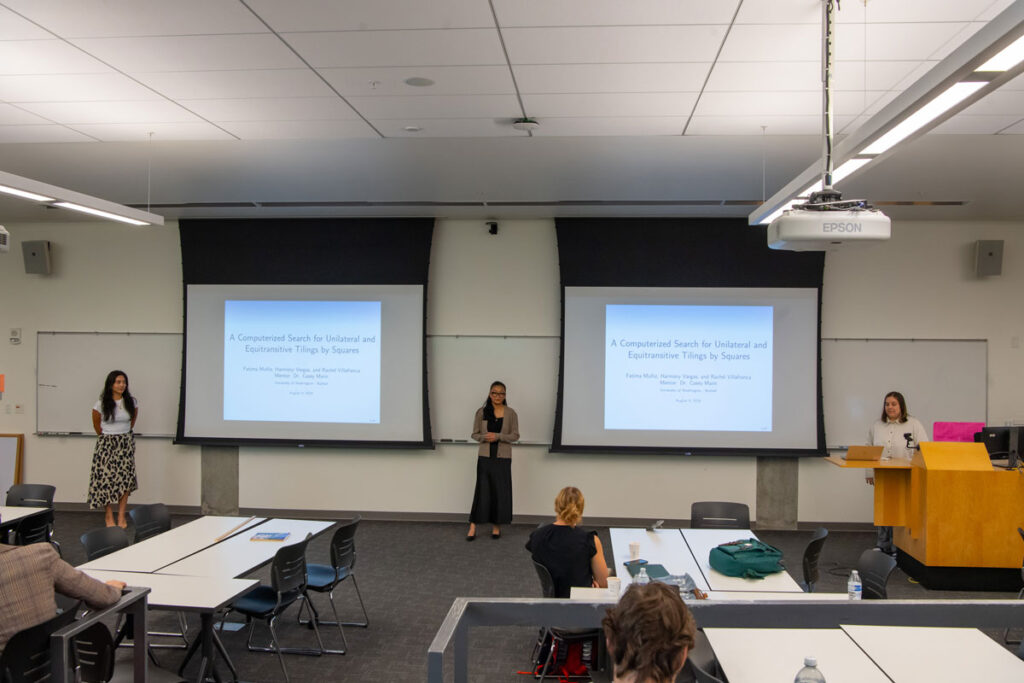
Examining local climate impacts
The physic students in the summer REU cohort were also able to put theory to practice in research designed to examine and solve problems in the real world.
Under the mentorship of Dr. Eric Salathé, STEM professor and Physical Sciences Division chair, a group of students branched out into two veins of research looking at climate and atmospheric science through a local lens.
One advantage to the NSF-funded REUs, Salathé said, is that they’re funded separately from his other research. This allows students to have more agency in the direction of their work and follow their own research interests.
“Because my degree is very theoretical,” said Brian Fu, a senior majoring in Chemical Physics at Tufts University in Medford, Massachusetts, “I wanted to find something that applied what I was learning in the classroom to some kind of societal or environmental application.”
One project to come out of this group examined how summer heatwaves in the Pacific Northwest are affected by wind direction in a warming climate. The other student project analyzed projected trends for Washington in the rain shadow effect — an occurrence where mountain ranges can sometimes cause desert-like conditions when the ranges block rainfall to one side.
“Both summer heatwaves and the rain shadow effect have huge impacts on the health of our region in terms of wildfires and water resources,” Salathé, “and this work is really getting down to the atmospheric science part of it and the climate processes behind it. Both of these projects fit into ongoing research that we’re doing and can contribute to a larger vision in the future.”
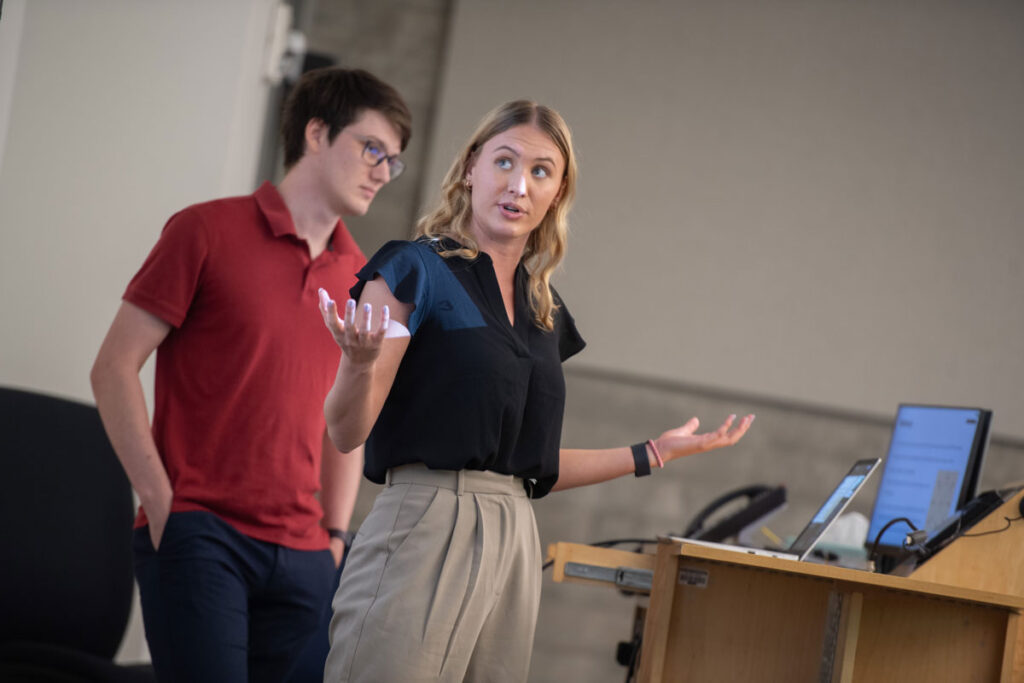
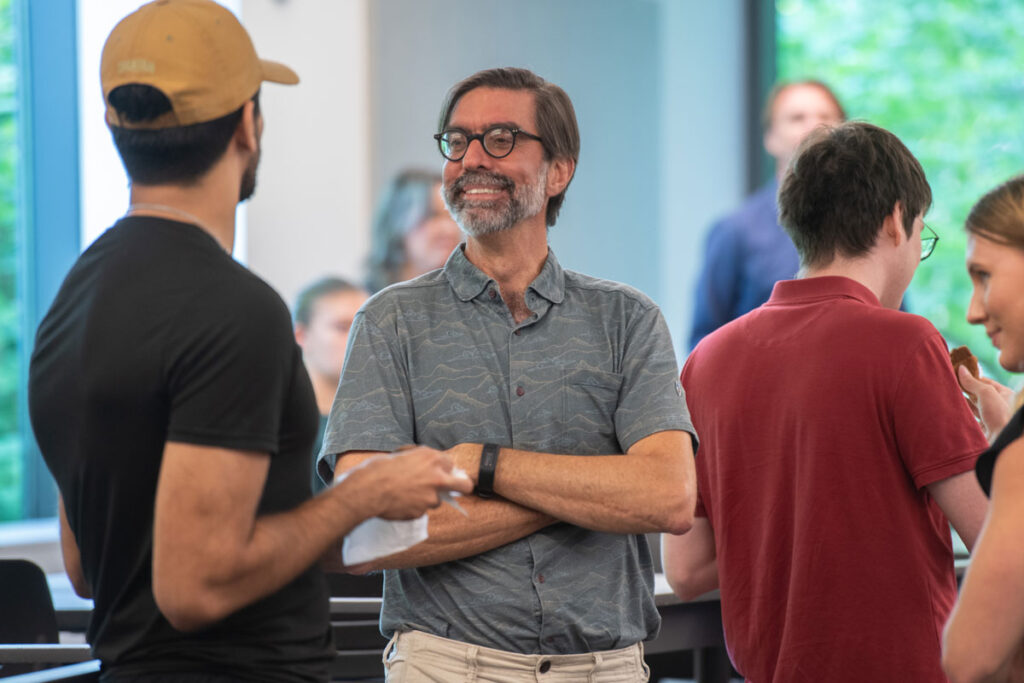
Learning from one another
Students in yet another research group focused on gravitational wave astronomy under the mentorship of Dr. Ansel Neunzert, a lecturer in the School of STEM. Gravitational waves are caused by massive objects accelerating in the universe and stirring up space and time. Working in collaboration with researchers at the Hanford Laser Interferometer Gravitational-wave Observatory in Richland, Washington, the REU students contributed to ongoing work to better understand the universe by observing systems through the gravitational waves they create.
Specifically, the students worked in detector characterization, clustering and identifying different noises to determine what is important and what is unrelated or coming from the same source.
Some of the most challenging parts of this project, they said, was the coding work this involved and the emotional toll of striving to do real work on a major scientific scale they’d previously thought was out of reach.
“The impostor syndrome is rampant,” said Autumn Marceau, a junior at the UW in Seattle who is majoring in Physics and Astronomy. “But just pushing through that self-doubt every day, faking it till I make it — that has also at the same time been the most rewarding part. And proving to myself that, although it’s hard, I’m capable of doing hard things.”
As the students worked to overcome these challenges, they also found powerful allies in one another, leaning on each other’s skills and knowledge to complete their objective.
“Your community is really, really important, and research is a collaborative endeavor,” Neunzert said. “And while students are assigned a mentor, your mentor isn’t the only person in your research community. Your peers and your collaborators are there for you to interact with and ask for help when you need it.”
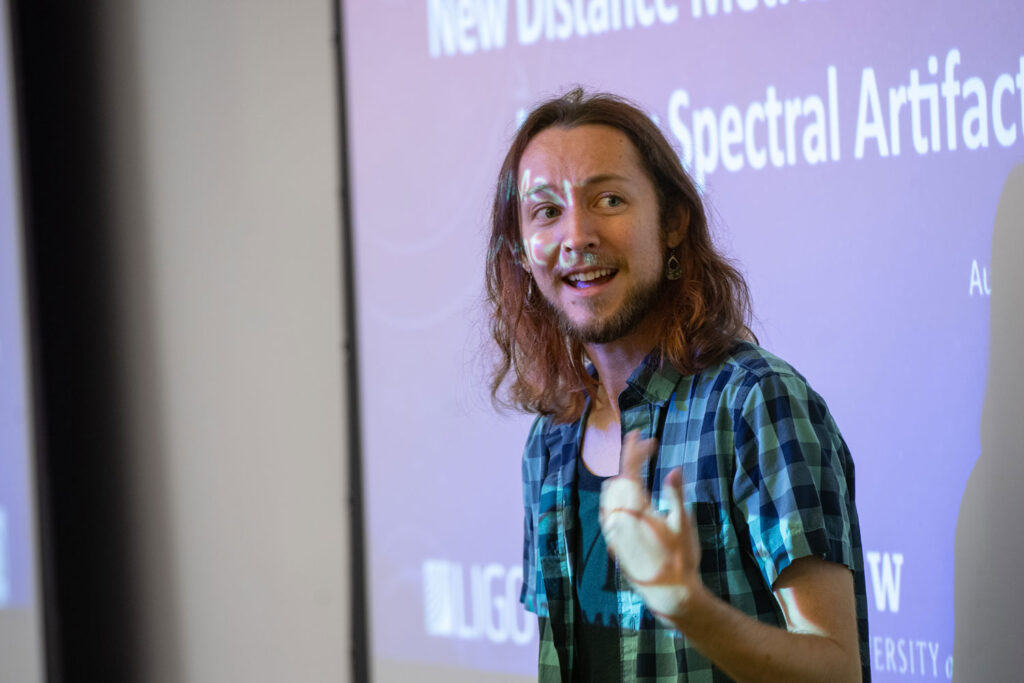
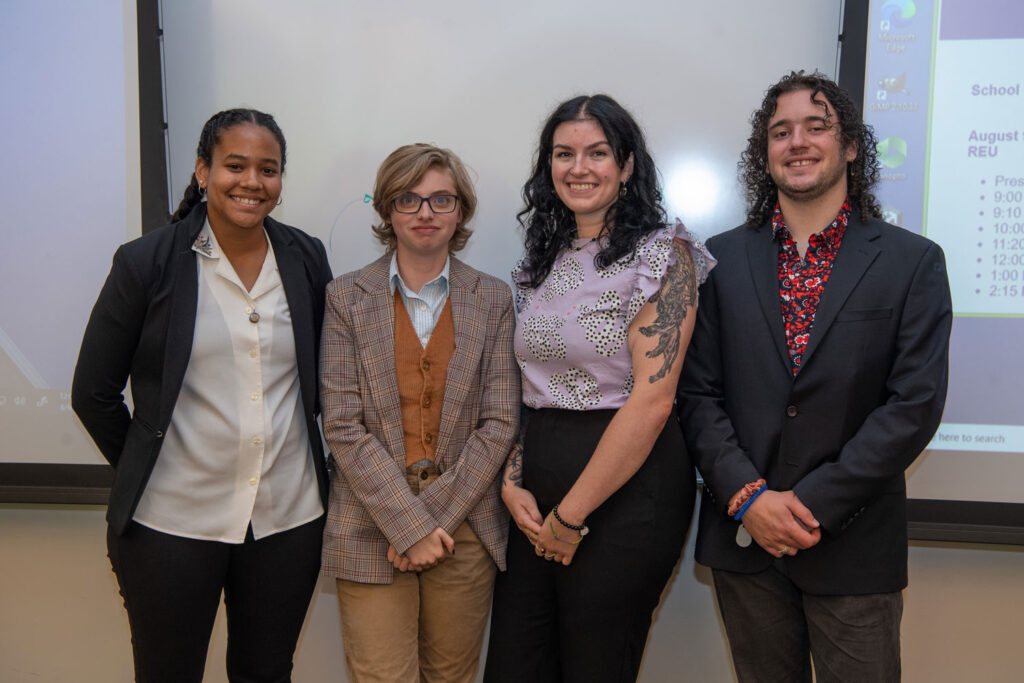
Better prepared for the future
Summer REUs are a precursor to graduate school for many students, giving them a taste of what to expect in collaborative, graduate-level research. They are also an opportunity to explore possible areas of study in greater depth and to explore programs that other schools have to offer.
“The entire experience has just made me a better student, a better researcher and a better person overall,” said Wilhoit. “This experience working with a team and working with a mentor is vital for anyone who wants to go not into just grad school but into the work environment as a whole.”
The faculty and student connections made though these experiences can benefit students as they continue their education and start careers.
“Even after they are my students, I am still a partner for them as they move forward,” Loreto said. “I’ll be there supporting them for as long as they need. They have a mentor for life — and and we hope to foster connections among the students as well because these are the people who will become their network. These are their future colleagues.”
